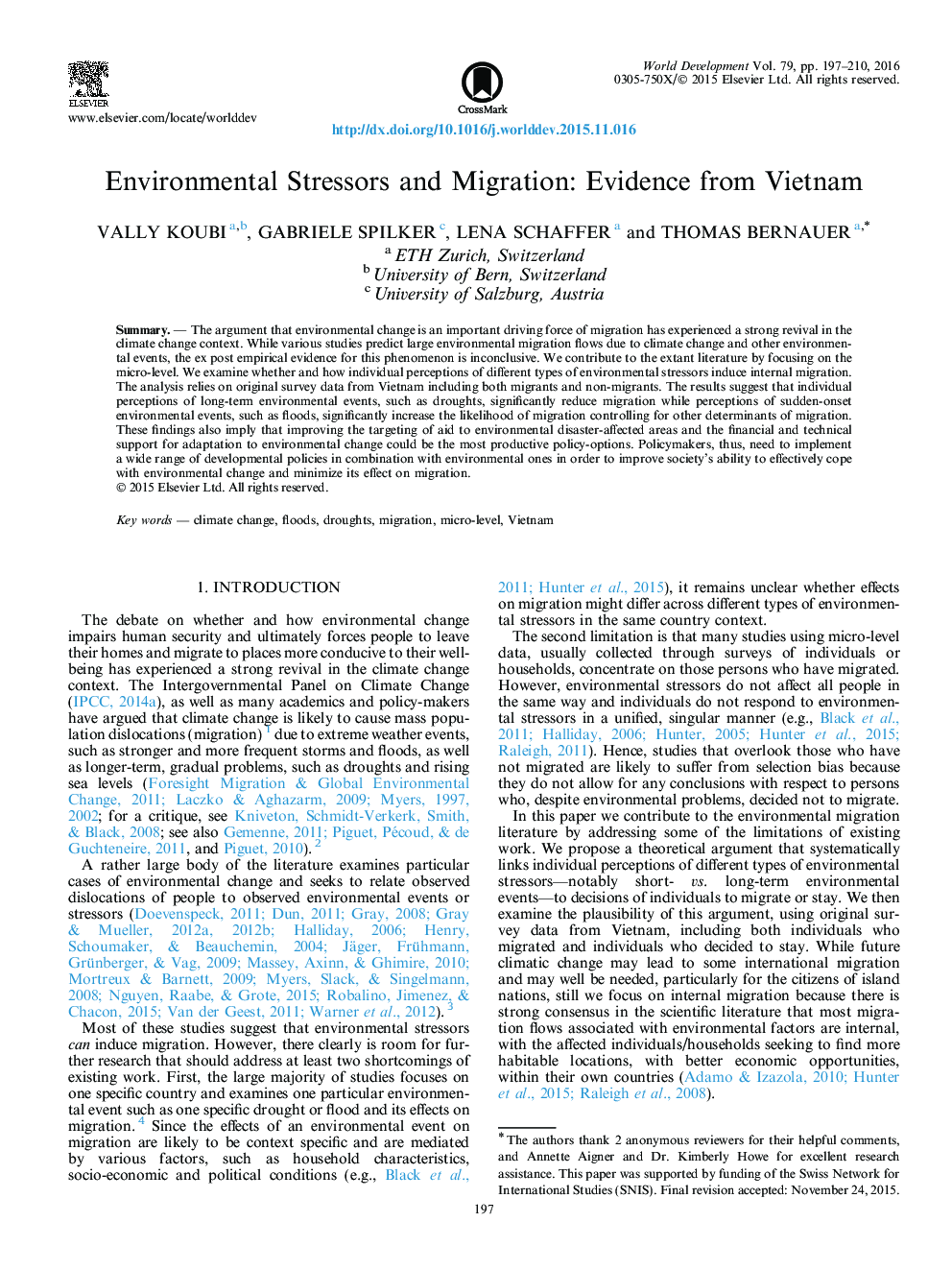| Article ID | Journal | Published Year | Pages | File Type |
|---|---|---|---|---|
| 7392961 | World Development | 2016 | 14 Pages |
Abstract
The argument that environmental change is an important driving force of migration has experienced a strong revival in the climate change context. While various studies predict large environmental migration flows due to climate change and other environmental events, the ex post empirical evidence for this phenomenon is inconclusive. We contribute to the extant literature by focusing on the micro-level. We examine whether and how individual perceptions of different types of environmental stressors induce internal migration. The analysis relies on original survey data from Vietnam including both migrants and non-migrants. The results suggest that individual perceptions of long-term environmental events, such as droughts, significantly reduce migration while perceptions of sudden-onset environmental events, such as floods, significantly increase the likelihood of migration controlling for other determinants of migration. These findings also imply that improving the targeting of aid to environmental disaster-affected areas and the financial and technical support for adaptation to environmental change could be the most productive policy-options. Policymakers, thus, need to implement a wide range of developmental policies in combination with environmental ones in order to improve society's ability to effectively cope with environmental change and minimize its effect on migration.
Related Topics
Social Sciences and Humanities
Economics, Econometrics and Finance
Economics and Econometrics
Authors
Vally Koubi, Gabriele Spilker, Lena Schaffer, Thomas Bernauer,
